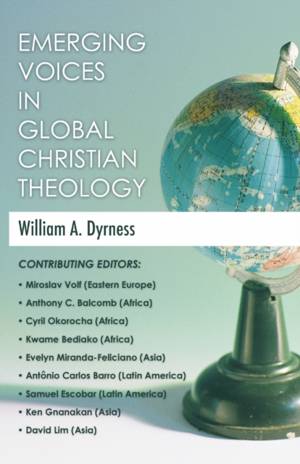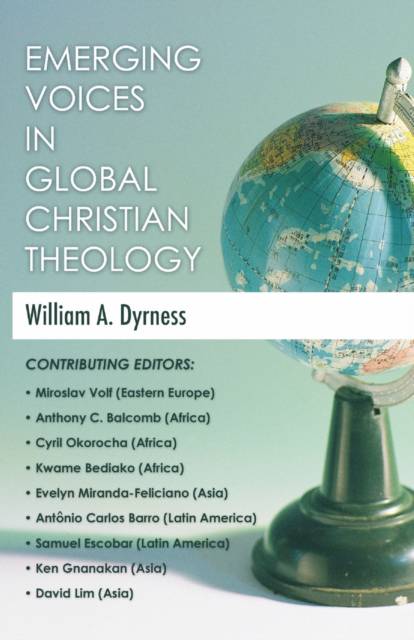
Je cadeautjes zeker op tijd in huis hebben voor de feestdagen? Kom langs in onze winkels en vind het perfecte geschenk!
- Afhalen na 1 uur in een winkel met voorraad
- Gratis thuislevering in België vanaf € 30
- Ruim aanbod met 7 miljoen producten
Je cadeautjes zeker op tijd in huis hebben voor de feestdagen? Kom langs in onze winkels en vind het perfecte geschenk!
- Afhalen na 1 uur in een winkel met voorraad
- Gratis thuislevering in België vanaf € 30
- Ruim aanbod met 7 miljoen producten
Zoeken
Omschrijving
There are some new voices emerging in Christian theological conversation these days. They do not speak with American or Western European accents, but reflect their settings in Africa, Asia, and Latin America. Since they come from many places, the theological questions they ask are not ones we are used to in the West. They are as likely to speak of ancestor worship or political oppression as they are of church growth or evangelism. One thing is clear: we cannot listen to their cries of hope (or despair) without being deeply moved. This book gives an opportunity to listen in to important conversations going on in different parts of the world. These Christian theologians do not respond to a common set of questions, but are setting their own agendas of theological discussion. With some general introductory comments, these pieces are meant to stimulate an appetite for further exploration. There seems little doubt that the major voices in theology in the next generation will share these non-western accents.
Specificaties
Betrokkenen
- Auteur(s):
- Uitgeverij:
Inhoud
- Aantal bladzijden:
- 256
- Taal:
- Engels
Eigenschappen
- Productcode (EAN):
- 9781592444472
- Verschijningsdatum:
- 30/12/2003
- Uitvoering:
- Paperback
- Formaat:
- Trade paperback (VS)
- Afmetingen:
- 142 mm x 215 mm
- Gewicht:
- 317 g

Alleen bij Standaard Boekhandel
+ 86 punten op je klantenkaart van Standaard Boekhandel
Beoordelingen
We publiceren alleen reviews die voldoen aan de voorwaarden voor reviews. Bekijk onze voorwaarden voor reviews.









